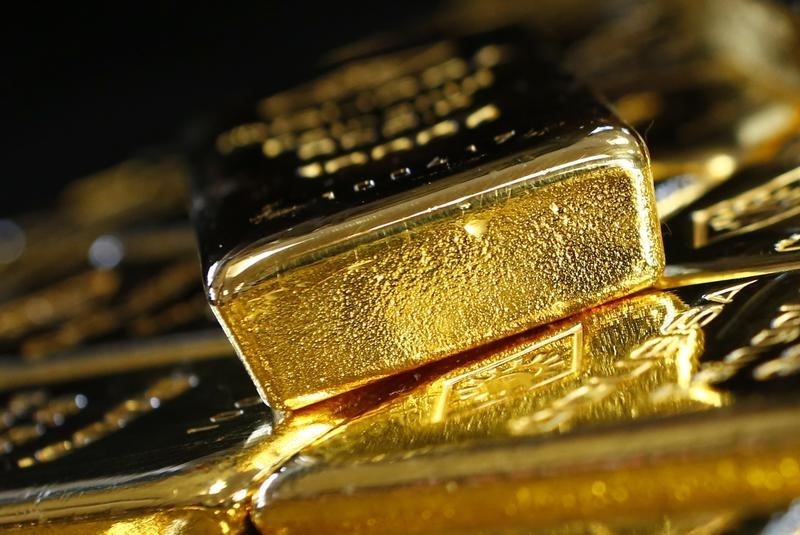Street Calls of the Week
By Ambar Warrick
Investing.com -- Gold prices rose slightly from a five-week low on Thursday, but gains were limited as stronger-than-expected retail sales data and signs of sticky inflation in the U.S. spurred fears of more interest rate hikes by the Federal Reserve, pushing up Treasury yields.
The yellow metal fell sharply on Wednesday after data showed U.S. retail sales grew substantially more than expected in January. The data, coupled with stronger-than-expected inflation readings for the month, fueled concerns that inflation will remain sticky, giving the Fed more impetus to keep raising interest rates this year.
Gold prices have consolidated a bulk of their recent gains on these fears, as markets began dialing back bets that the Fed could potentially pivot this year. The central bank has so far maintained its hawkish rhetoric.
Spot gold rose 0.3% to $1,841.32 an ounce, while gold futures rose 0.3% to $1,850.70 an ounce by 21:16 ET (02:16 GMT). Both instruments were down 1.5% and 0.9%, respectively, so far this week.
The prospect of rising interest rates bodes poorly for the yellow metal and its non-yielding peers, as the opportunity cost of holding such assets increases. Gold was also pressured by a spike in short-term Treasury yields this week, which caused a deeper inversion in the U.S. yield curve - a classic sign that markets were pricing in a potential recession.
Rising short-term yields also sapped safe haven demand for gold, which would otherwise benefit from fears of a U.S. recession.
Other precious metals also rose on Thursday after sharp losses this week. Platinum futures rose 0.4% to $921.75 an ounce, while silver futures rose 0.7% to $21.730 an ounce.
Among industrial metals, copper prices steadied after wild swings this week, as traders weighed fears of a global recession and ensuing slowdown in demand against a potential upside for prices from supply disruptions in Panama.
High-grade copper futures rose 0.3% to $4.0380 a pound. Prices of the red metal had risen earlier this week as an ongoing dispute between the Panama government and copper miners threatened to shut down copper supplies from the country.
But fears of a global recession and a dearth of economic cues from China limited the upside for copper.
